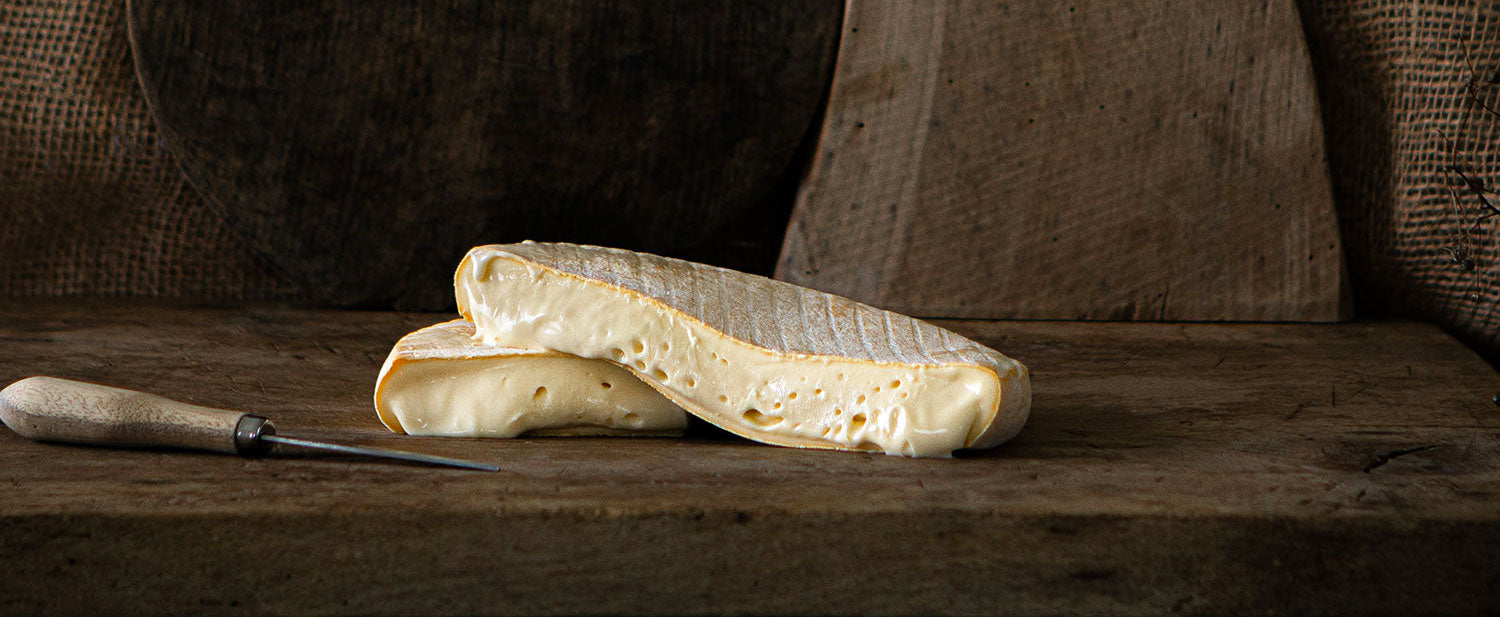Rædwald is back by exceptional demand for it's second season and will be available again from mid February 2026. Stock will still be very limited, so keep a look out for the launch emails. If you are not on our mailing list, join here.

Rædwald is back

It is an incrediby impressive cheese, such a tricky thing to get that rind so perfect.
- Ruth - Fine Cheese Co -

I discovered this last winter, delicious! Can't wait to get some again.
- Judi Rayner, customer -

Can't wait to have this back in the deli!
- Little Swift Bar and Shop -
Rædwald
Rædwald (pronounced Redwold) is our Suffolk take on a traditional French Reblochon.
It's a seasonal rind-washed cheese made only during the winter months, using the fresh creamy afternoon milk of our free-ranging Montbéliarde cows - which is too creamy for making Baron Bigod.
Its flavours, aromas and characteristics are influenced by the rich winter milk and the diverse variety of grasses and herbs that grow here in the beautiful Waveney River Valley, Bungay.
It has the crunchy, toothsome rind and smooth oozing paste of a classic Reblochon, but the flavours are a deeply Suffolk experience. This is a cheese to be eaten sat on a log by a campfire, in a Suffolk woodland. It has flavours of briny sea air, smokey bacon, fresh hazelnuts, mushrooms and mossy bark.
Rædwald is only available between February – April each year, making it a true celebration of the milk produced in our deep Suffolk winter and early spring.
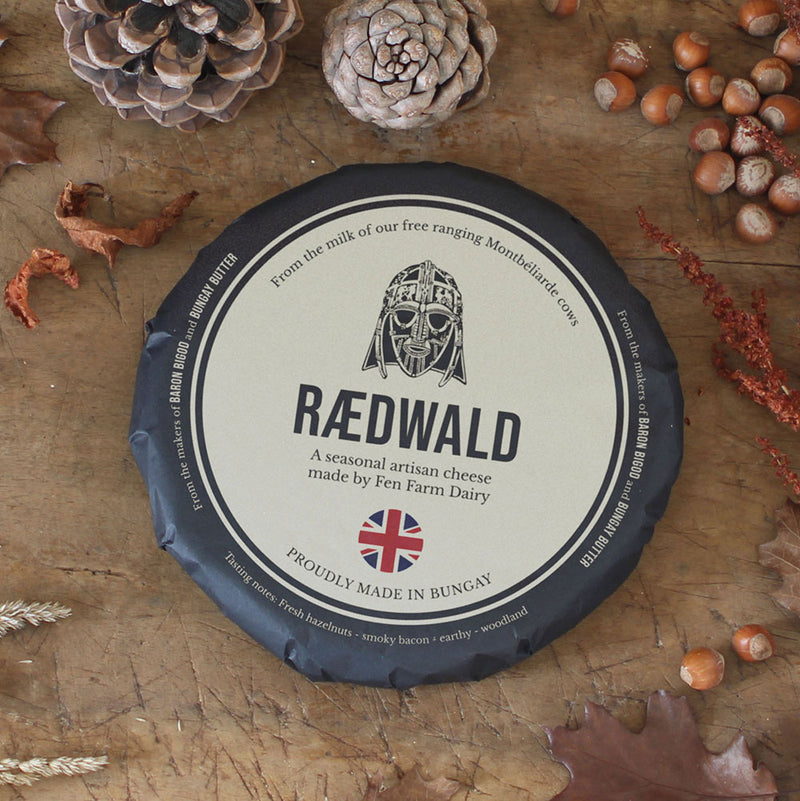
Why did we decide to make a second cheese?
Back in 2021, we realised that we needed to find a way to use up the surplus of rich, high cream milk that our cows produce in the depths of winter after Christmas, when sales of our first cheese, Baron Bigod, dwindle for a time.
We needed to make a cheese that wouldn’t introduce unwanted mould types into our cheese building which could affect the quality of Baron Bigod, but that was also different enough from Baron Bigod that it wouldn’t affect the sales of the Baron.
On a study tour of the French Savoie region, Jonny was fortunate enough to visit some of the best Reblochon makers in France, many of whom never sell their cheeses outside of the Savoie. The flavours of these cheeses blew Jonny’s mind and he became determined to create something of this quality on our farm.
Can you call it a Suffolk Reblochon?
No. Reblochon is a protected name and can only be produced in the designated PDO region of France. Our Rædwald cheese has its own identity, unique to the landscape and history of our region.
Tell me the story of Reblochon and why it spoke to you?
The name Reblochon is derived from the French word “reblocher” which translates as “to pinch a cow’s udder again”. Legend has it that the first Reblochon cheeses were created as a tax avoidance scheme. 13th Century French farmers were taxed on their milk by volume, so when the tax man came round to collect the taxes, the farmers would only partially milk their cows, leaving the last part of the milk in the udder. Once the tax man left, the farmers would quickly milk the final (and creamiest) part of the milk from their cows and make it into the most deliciously rich and creamy cheese.
The milk from our cows is at its richest and creamiest during the winter, making it ideal for making a Reblochon-style cheese.
Reblochon is also a cheese that is very much associated with winter and cooking/melting in the skiing season. As we only wanted to make this cheese in the winter, it seemed as though it was meant to be!
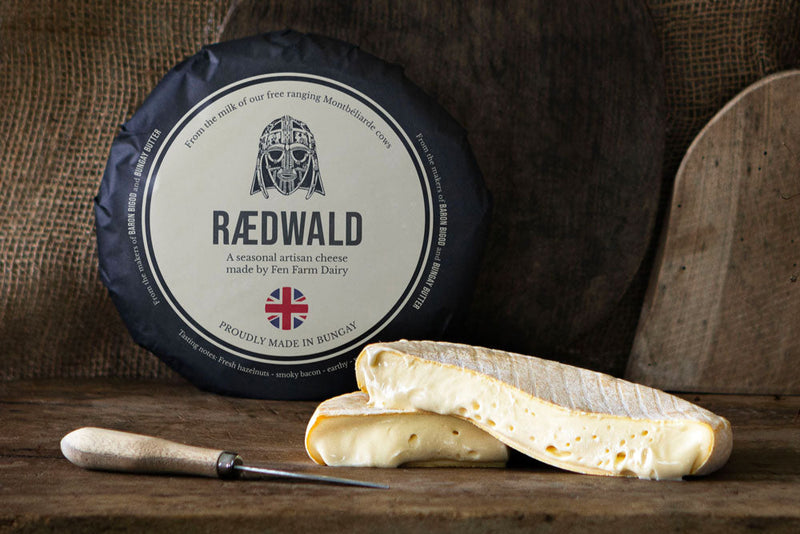
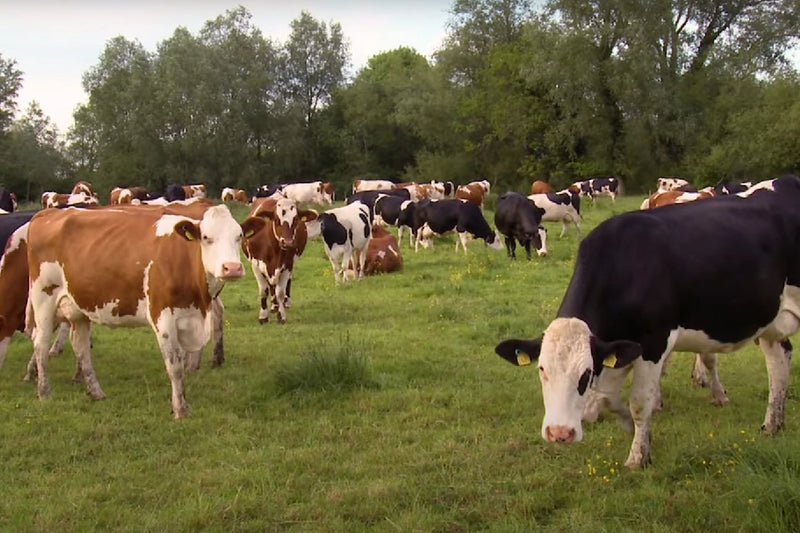
How do you make a Reblochon-style cheese in Suffolk?
Once again, our wonderful Montbéliarde cows came to the rescue. The “Monty” is one of the most popular breeds for making Reblochon and many other famous cheeses in France.
To help us get started, we called on our old friend and French cheese technologist Ivan Larcher, who had helped us to develop our first cheese Baron Bigod, 10 years previously. Ivan joined Head cheesemaker Marc and his team in September 2023 and together they made the first trial batches of Rædwald here at Fen Farm.
Why the name Rædwald?
Rædwald was the Anglo Saxon king of early Suffolk and Norfolk between 599-624AD. His story is shrouded in mystery but archaeologists believe they may have found his tomb at the hauntingly beautiful site of Sutton Hoo on the nearby Suffolk coast.
Buried in a grassy mound in a field, a beautiful timber longship, weapons and jewels fit for a king, items gifted from far-flung lands and the remains of an ornate battle helmet. The helmet has become the iconic symbol of King Rædwald and was our inspiration for the logo of our Rædwald cheese, drawn by artist Gemma Wiseman.
The flavours and aromas of our Rædwald cheese tell a story of the cool woodlands of Rædwald’s once-kingdom of coastal Suffolk. Deep spinneys of hazel, chestnut and oak, interspersed with scrubby purple heather and yellow honey-scented gorse. Reedy marshlands resonant with the booming of bitterns. Sprawling copses marching across high heathlands, whipped by briny sea air and occasionally tumbling over eroded cliffs to be smashed by the mud-brown North Sea and bleached to silver skeletons by the sun.
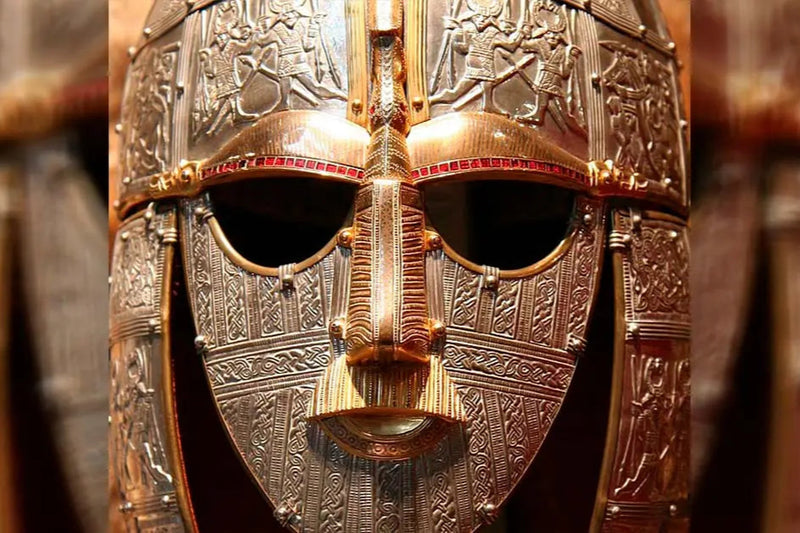
Move over tartiflette, Bungayflette is here!
As Rædwald is a reblochon-style cheese and only available in the colder months, we thought it would be rude not to create our very own British version of the classic French ski-season dish, tartiflette. We’ve teamed up with top British chef James Jay to bring you the ultimate in gooey, melting, glorious cheesy comfort – Bungayflette! This dish not only showcases our Rædwald cheese but also uses some of the best of British seasonal produce. Watch the video below to see how it’s made, or for the full written recipe, click here.
